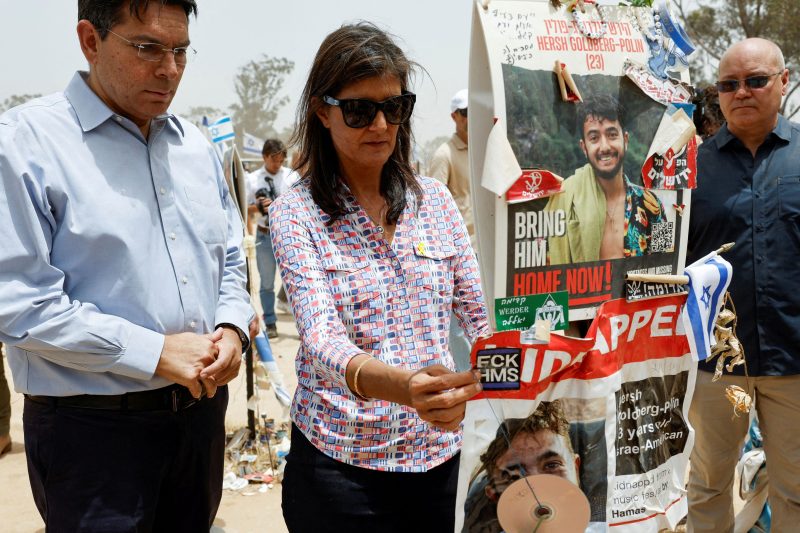In a recent controversial incident, former U.S. Ambassador to the United Nations Nikki Haley has come under fire for a seemingly inappropriate message written on an artillery shell during a visit to Israel. The phrase Finish them inscribed on the shell has sparked widespread criticism and debate, raising questions about the implications of such actions in the realm of international diplomacy and conflict resolution.
Haley, known for her strong stance on foreign policy and support for Israel, made headlines when a photo emerged showing her posing with the shell bearing the contentious message. Critics argue that the wording of Finish them carries violent and aggressive undertones, potentially inciting further conflict in the already tense Middle East region. Some have accused Haley of promoting a militaristic approach to handling the complex geopolitical issues at play in the Israeli-Palestinian conflict.
The incident has reignited discussions about the role of diplomats and public figures in shaping perceptions and influencing actions on the global stage. As a former high-ranking official in the U.S. government, Haley’s words and deeds hold significant weight and may have far-reaching consequences. The choice to inscribe a suggestive message on a military object raises concerns about the message it sends and the potential impact on diplomatic efforts aimed at de-escalating tensions in the region.
Moreover, the use of inflammatory language on a piece of artillery raises ethical questions about the glorification of violence and warfare. At a time when efforts to promote peace and dialogue should be prioritized, the display of such language by a prominent figure like Haley undermines the principles of diplomacy and conflict resolution. The optics of a senior diplomat endorsing language that appears to advocate for the use of military force as a means to an end is troubling and counterproductive in the pursuit of sustainable peace.
Critics of Haley’s actions argue that her behavior sets a dangerous precedent and sends the wrong message to other nations and actors involved in the Israeli-Palestinian conflict. Diplomatic missions should be conducted with sensitivity and respect for all parties involved, with a focus on dialogue, negotiation, and peaceful resolution of conflicts. The use of provocative language and imagery only serves to perpetuate hostilities and hinder progress towards achieving lasting peace in the region.
In conclusion, the incident involving Nikki Haley and the Finish them message on an artillery shell serves as a reminder of the complexities and challenges inherent in international diplomacy. As global leaders and influencers, it is crucial for individuals in positions of power to exercise caution and responsibility in their actions and statements, particularly when dealing with sensitive geopolitical issues. The case of Haley underscores the need for a more thoughtful and constructive approach to conflict resolution, one that prioritizes dialogue, mutual understanding, and respect for international norms and principles.

